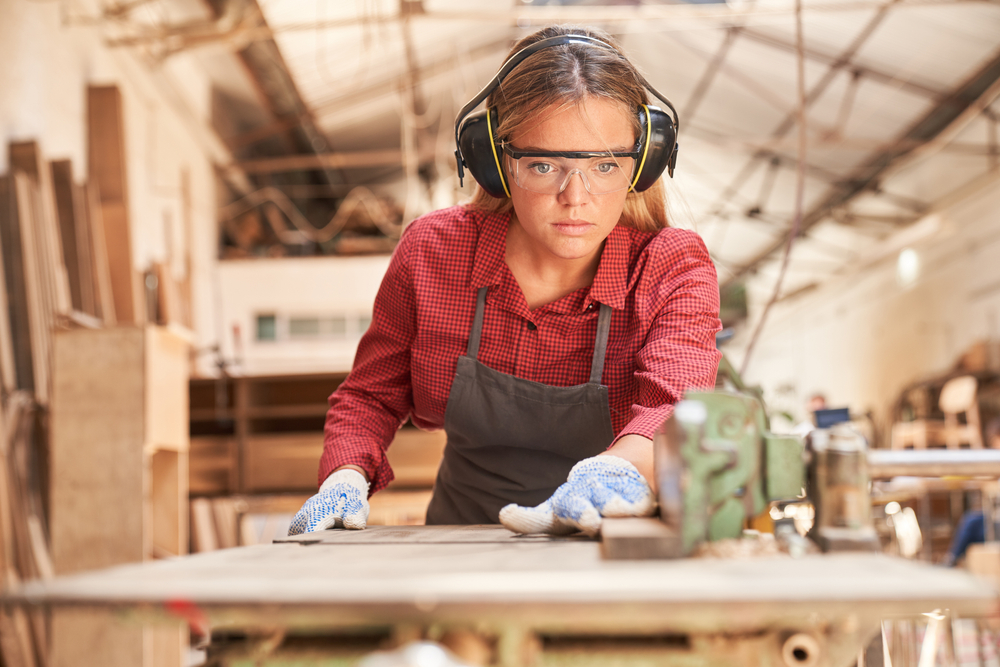
Whether you’re attending concerts, working, or doing some yard work, hearing protection is indispensable in keeping your ears safe from dangerous noise levels. However, you could be left exposed to possible risks if any one of a number of potential factors interferes with your hearing protection’s effectiveness. Understanding these issues can help you address them proactively and optimize the advantages of your protective gear.
Common reasons why hearing protection fails
Unexpected challenges will occur even when you follow best practices. You wear your earmuffs faithfully at work, wear earplugs at concerts, and stay away from noisy situations whenever you can. Yet, some variables can still interfere with your hearing protection’s effectiveness. Luckily, by recognizing these common pitfalls, you can make educated adjustments to ensure your hearing is always well-protected.
1. Specific circumstances call for specific types of hearing protection
Hearing protection isn’t one-size-fits-all, and selecting the wrong type for a given environment can reduce its effectiveness.
In general, hearing protection falls into two main categories:
- Earplugs: Small foam or rubber plugs that insert tightly into the ear canal.
- Earmuffs: Bigger, headphone-like device that goes over the whole ear.
Each kind has its ideal use case:
- Earmuffs are better for situations with intermittent noise, such as a construction site where machinery starts and stops frequently.
- Settings with a continual noise threshold, like a factory floor or the cabin of an airliner, are the ideal times to use earplugs.
If you’re in a quiet setting and need to momentarily remove your hearing protection, earmuffs are easier to manage. Disposable earplugs, on the other hand, can leave you susceptible to hearing damage because they can be easily lost. The first step towards successfully safeguarding your hearing is to pick the correct type of hearing protection.
2. Fit and function are affected by anatomy
Some devices will fit better than others based on the size and shape of the individual’s ears. Basic earplugs and earmuffs are usually designed for average dimensions, but your ear anatomy might require a more personalized solution.
- Larger ear structures: Oversized ears can make earmuffs uncomfortable, causing gaps in the seal that allow noise to enter.
- Smaller ear canals: If you have narrow ear canals, standard-sized earplugs might not create an effective seal, reducing their noise-blocking capabilities.
If your hearing protection isn’t fitting properly, you could become discouraged and decide to quit using them altogether which can imperil your hearing. Think about buying custom-fitted earplugs or professionally fitted earmuffs if you spend a great deal of time in loud settings. These tailored solutions provide maximum comfort and effectiveness, ensuring you stay protected in any scenario.
3. Ignoring routine upkeep and replacement
In order to remain effective, hearing protection devices need to be correctly maintained just like any other devices do. Their ability to provide sufficient protection can be compromised by things like improper cleaning, wear and tear, and failure to replace them when necessary.
Here’s how to take care of your hearing protection:
- Replace Cushions: The pliability of earmuff cushions can diminish over time. In order to maintain a proper seal, replace the cushions when necessary.
- Clean Properly: Debris and earwax can accumulate on your hearing protection over time. In order to safely and effectively clean your earplugs or earmuffs, consult the manufacturer-recommended cleaning guidelines.
- Inspect for Damage: Regularly inspect the elastic band on earmuffs. A slack or stretched band can reduce their snug fit, lowering their noise-blocking capacity.
Your hearing protection will be less effective and possibly unusable if you disregard these basic maintenance tasks. Regular upkeep is crucial to extend their lifespan and ensure consistent performance.
The advantage of a hearing specialist
If you’re unsure whether your hearing protection is doing its job, schedule an evaluation appointment with us. After examining your devices, we can help you with a customized solution that will work best for you.
Keeping your hearing safe is a commitment that lasts a lifetime and it’s important that you do it with the proper tools. You can protect and preserve your hearing for many years by managing these common challenges.
